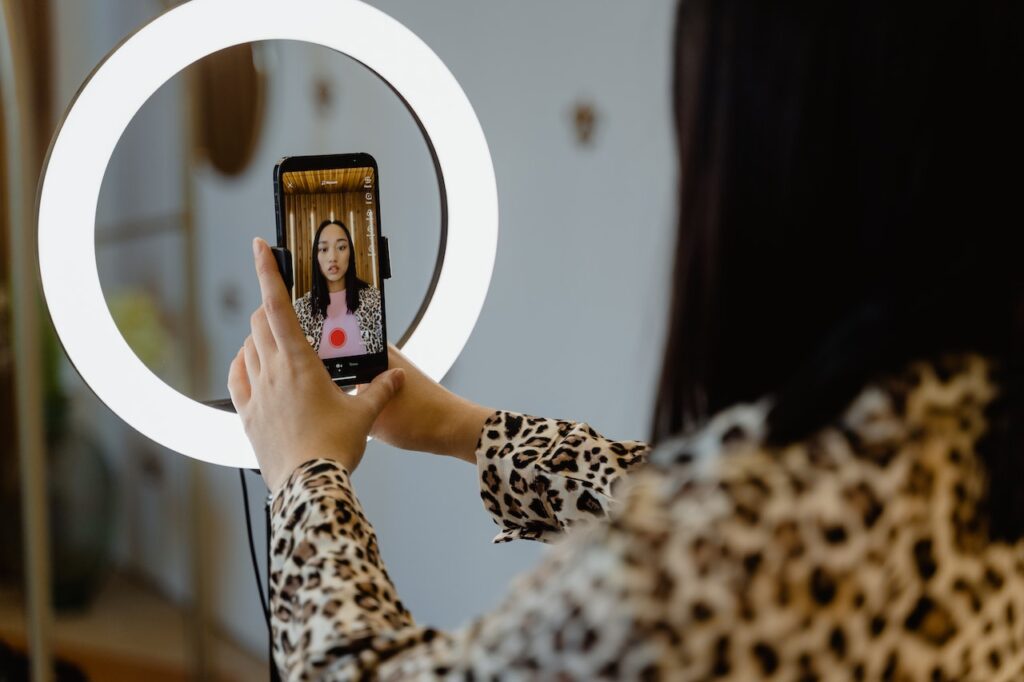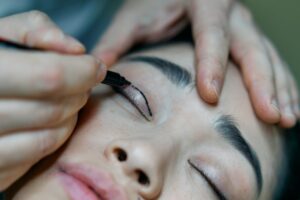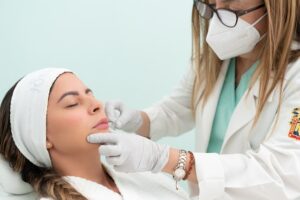How Instagram and TikTok Influence Plastic Surgery Trends
5 Minute Read:

In the digital age, the landscape of cosmetic enhancements is shifting rapidly. Remarkably, platforms like Instagram and TikTok now drive plastic surgery trends. As filters transform faces with a tap, users grapple with altered beauty perceptions. Consequently, the ‘Instagram Face’ emerges, while TikTok virally propels specific aesthetic shifts. Yet, these platforms aren’t just about fleeting trends. They can educate, inspire body positivity, and sometimes mislead. As we dive deeper, we’ll uncover how these platforms influence decisions, how surgeons adapt, and the future of aesthetic procedures in this social media-driven era. Let’s embark on this enlightening journey.
The Rise of the ‘Filtered’ Look
Social media teems with beauty transformations. Filters, at the forefront of this revolution, have made dramatic alterations effortless. Instantly, blemishes vanish, noses refine, and lips plump. Resultantly, these digital touch-ups skew our real-world beauty standards. Suddenly, the ‘Instagram Face,’ characterized by high cheekbones and sultry eyes, dominates our feeds. However, while captivating, it’s essential to remember that this look often strays from reality. It’s birthed a surge in aesthetic treatments, with many seeking to mirror these online ideals. Undeniably, the fusion of tech and beauty has redrawn the boundaries of attractiveness. Yet, as we embrace this era of augmented allure, understanding the line between digital fantasy and authentic beauty becomes paramount. This digital tide, intriguing and influential, shapes our modern perception of cosmetic appeal.

Identifying reality from digital illusion can be challenging in the likes and shares era.
The Virality of Plastic Surgery Trends on TikTok
With its captivating short videos, TikTok has revolutionized the cosmetic enhancement scene. Remarkably, trends like the “fox eye” look swiftly gained popularity on this platform. In addition, challenges centered around aesthetic procedures, such as the “lip filler challenge,” have garnered millions of views. As these trends surge, influencers and celebrities amplify their reach, normalizing and championing specific looks. With each viral sensation, consultations flood clinics, reflecting the app’s tremendous influence.
Yet, while TikTok can spotlight the latest in cosmetic alterations, it’s essential to discern between fleeting fads and authentic, lasting beauty. As we navigate this realm, understanding TikTok’s role in shaping our perceptions becomes paramount. Thus, beyond entertainment, this platform is a powerful force in the evolving world of beauty enhancements.
The Dangers of Social Media-Influenced Decisions
Discerning reality from digital illusion becomes challenging in the age of likes and shares. Social media, especially platforms like TikTok and Instagram, presents beauty ideals that may not always be authentic. Consequently, many users, swayed by filtered perfection, rush to seek aesthetic alterations without thorough research. A study showed that 35% of individuals, influenced by home makeover trends, later needed storage solutions due to impulse buys of cosmetic products that were not suitable for them. This impulsiveness can lead to dissatisfaction, regret, and, in some cases, health complications.
Moreover, the appeal of trending beauty enhancements can push individuals toward unqualified practitioners, risking subpar results. Furthermore, while social platforms celebrate specific looks today, these trends might fade tomorrow. In this digital whirlwind, self-awareness and comprehensive knowledge remain crucial. So, before succumbing to the magnetic pull of the latest cosmetic trend, pause, reflect, and prioritize personal well-being over fleeting social media fads.

Additionally, the popularity of plastic surgery trends may encourage people to seek out unqualified surgeons.
The Positive Side: Awareness and Education
Amidst the frenzy of plastic surgery trends amplified by platforms like TikTok and Instagram, a silver lining emerges. These platforms, initially designed for entertainment, now serve as educational conduits. Many professionals harness their reach to share vital information about safe cosmetic procedures. Instead of mere before-and-after showcases, they delve into the intricacies of procedures, demystifying myths. Concurrently, real patient stories offer genuine insights, setting realistic expectations for those intrigued.
Additionally, the rise of body positivity movements counterbalances prevailing beauty standards. This growing awareness promotes informed choices, valuing personal well-being over mere aesthetics. Thus, while the allure of trending beauty enhancements remains potent, the digital landscape, when navigated judiciously, can also empower individuals to make enlightened decisions about their aesthetic journeys.
How Surgeons Are Responding
In light of the digital-driven surge in aesthetic desires, surgeons are recalibrating their approach. Navigating the influx of patients, they prioritize comprehensive consultations. Here, they debunk myths and set realistic expectations. Furthermore, as influencers spotlight specific treatments, ethical professionals often emphasize individualized solutions over one-size-fits-all trends. Interestingly, many surgeons now employ social media themselves. They showcase their expertise and educate the masses on the art and science behind procedures. Balancing between trending demands and medical best practices ensures patient satisfaction and safety remain paramount. This evolving dynamic underscores the symbiotic relationship between surgeons and the digital age.

Will the new beauty standard be a TikTok flash in the pan or define an era?
Looking Ahead: The Future of Plastic Surgery in a Digital Age
Peering into the future, the intersection of cosmetic enhancements and digital innovations promises intriguing developments. With advancing tech, virtual and augmented reality might revolutionize consultations, offering immersive previews of potential outcomes. Simultaneously, as globalized beauty standards gain prominence, the challenge will be celebrating individual uniqueness. Furthermore, the rapidity of digital trends poses questions: Will the next beauty ideal last a mere TikTok moment or shape an era? As we tread forward, the importance of digital literacy in discerning real from virtual becomes paramount. In this evolving landscape, embracing both technology and authenticity will chart the course for the future of aesthetic transformations.
Conclusion
In this digital tapestry, plastic surgery trends have woven a fascinating and complex narrative. From the magnetic allure of the “Instagram Face” to the rapid virality of TikTok trends, the modern quest for aesthetic perfection is undeniably intertwined with social media’s omnipresence. Yet, as we’ve explored, it’s crucial to tread with awareness, prioritizing genuine well-being over fleeting digital ideals. Surgeons, too, face the challenge of marrying artistry with evolving digital desires. As we move forward, let’s embrace the advancements but remember to celebrate our unique essence. After all, the journey to self-enhancement should be rooted in authenticity and informed choices.




















